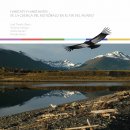From 30 May to 15 June, 2008, OSARA will lead a new Tracing Darwin’s Path course to the Cape Horn Biosphere Reserve. The course, entitled “Field Course in Sub-Antarctic Conservation: Integrating the Human Dimension to Biocultural Conservation at the Southern End of the Americas,” will provide students with an interdisciplinary research, conservation and education experience at one of the most pristine wilderness areas remaining in the world and will focus on the UNESCO Man and the Biosphere (MaB) Program’s approach to conservation – linking people and development with biodiversity and ecosystems. In addition, the 10 students from the U.S. will also interact with a parallel master’s course from the University of Magallanes (UMAG). Finally, the program will conclude with a 4 day international workshop inaugurating the Omora Park as a long-term socio-ecological reserach site (LTSER) with national and international academics and authorities.
Lead professors Dr. Christopher Anderson and Dr. Ricardo Rozzi will place emphasis on the following specific topics:
Global change – a holistic approach to social-biological change
– Exotic and invasive species
– Climate change and the ozone hole
– Endangered cultural diversity
LTERs – moving beyond just monitoring and achieving social integration
– Terrestrial-marine linkages
– “Hidden” biodiversity – bryophytes and aquatic macroinvertebrates
– Opportunities for ecosystem restoration and decision making
For more information, email the OSARA-UNT Chile Program Assistant Kelli Moses (kelli.moses@gmail.com).



